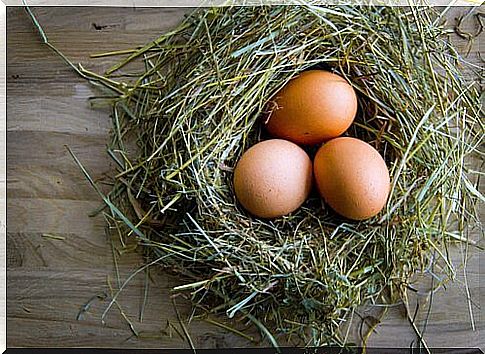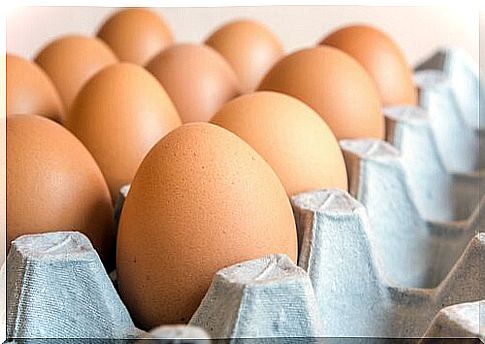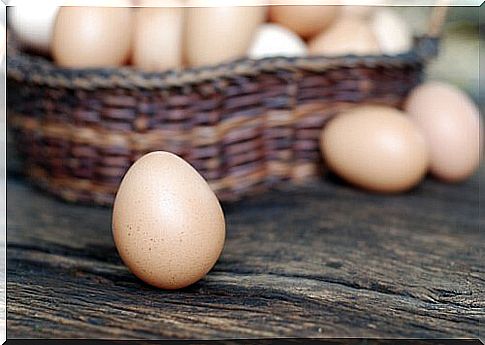Chicken Eggs: The Secrets To Improve Quality

Every producer knows that it is possible to improve the quality of chicken eggs. There are breeds of laying hens that are genetically prepared to sustain long productive periods, but keeping the bird in proper condition is a vital factor in having a better product.
The quality of chicken eggs depends on the intervention of various factors during the laying and hatching process. Animal care, proper sanitary conditions and a balanced diet are key to having high quality eggs .
How do you recognize good quality eggs?
Someone, too superficially, could go so far as to say that all eggs are the same . On the contrary, there are substantial differences even between two eggs from the same hen. For example, specialist entrepreneurs and kitchen professionals know that this is not the case. If you want to know if an egg is of quality, you will need to check its three basic elements : shell, yolk (the yellow part) and albumen (commonly called “clear”).
Shell quality
The appearance of this external protection and its size give a useful first impression, to the eye of the beholder. Appearance is fundamentally determined by the quality of the agglomerate, which manifests itself through color and brightness.
Industry experts know that people always prefer clean, unbleached eggs with a near- perfect appearance . Eggs with weak or spotted shells may indicate the presence of any disease in the hen.
Yolk quality
Once the egg is broken, the color of the yolk is a good indicator of the quality of the eggs. It is common to find pale yellow, deep yellow and even orange hues.
The natural color of the yolk depends on the diet of these domestic birds. Generally, the intense color is associated with the country egg, making it the preferred shade for consumers.
Foods like corn and alfalfa help give the egg a more intense color. Some manufacturers use synthetic substances so that the yellow can appear “stronger”.
Quality of egg white (or clear )
In this case, the aspect that is taken into consideration is the texture. The thicker and more gelatinous the egg white is, the better the quality of the analyzed egg will be. A key factor is the age of the laying hen. Food is also important. For example, the excess of magnesium in the animal’s diet affects the clear one.

Factors affecting the quality of chicken eggs
The genetics of the hen is a determining factor. But there are other elements that can improve the quality of chicken eggs. These concern choices relating to nutrition, the type of habitat and, of course, the health condition .
Nutritional factors
It is possible to improve the quality of your hens’ eggs by paying attention to these elements :
- Football. To get a quality egg, hens need to have enough calcium . If they don’t consume and assimilate enough, they will use that from their legs and bones, they will weaken and their eggs will be of inferior quality. Also, the productive period will be shorter. Incorporating calcium into the layers’ diet helps to obtain good quality eggs.
- Phosphorus. It is useful to laying hens only in the first phase of their development. Excess of this substance, when the bird is over a year old, damages the quality of the eggs and causes a poor distribution of calcium.
- Vitamin D. It is important to include adequate doses of this vitamin in the diet. Lack of vitamin D causes decalcification of the shell: the egg will be of inferior quality.
- Zinc, magnesium and copper. They are minerals that intervene in the formation of egg membranes. Therefore, their incorporation into food is helpful in improving the quality of the hen’s eggs.
- Fatty and linoleic acid. They mainly affect the size of the egg. It is supplied to animals in the diet in the form of vegetable oils.

Environmental and health factors
- Hens living in a stress-free environment will get better yields.
- It is important to always ensure the right temperature. Climatic changes (too hot or too cold) will inevitably lead to the laying of eggs of worse quality.
- The existence of micro toxins affects the metabolism of vitamin D and the absorption of nutrients. It is important to control these toxins and prevent incidence in birds.
- It is essential to adhere to vaccination schedules for disease prevention. These farm animals easily fall ill with infectious bronchitis and other diseases that reduce the number of eggs laid. If you want quality eggs, you need to worry about the health of your chickens.
Finally, keep in mind that specialized advice from professionals is always good. By comparing and exchanging ideas, you can plan your production better and get more favorable yields.









